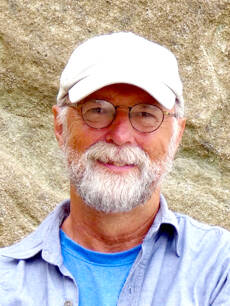PORT ANGELES — Sequim author Tim McNulty will share his thoughts and stories about the Olympic Peninsula for the launch of his latest book at 7 tonight at the Port Angeles Library.
“Salmon, Cedar, Rock & Rain: Washington’s Olympic Peninsula” (Mountaineers Books/Braided River, $32.95) explores the natural and cultural history of the Olympics through McNulty’s narrative, stunning photographs and essays by native American writers.
McNulty, along with David Guterson, who wrote the introduction, contributor Jamie R. Valadez of the Lower Elwha Klallam tribe and Sequim photographer John Gussman also will be at the event at the Raymond Carver Room, Port Angeles Library, 2210 S. Peabody St. Copies will be available for signing.
McNulty also will speak about the book at 7 p.m. Nov. 2 in the Carnegie reading room at the Port Townsend Library, 1220 Lawrence St.
The idea for the project originated with Braided River Press, the conservation imprint of the nonprofit Mountaineers Books in Seattle, which has published books on the Colorado River, Puget Sound and Prince William Sound, among others.
“Their idea is to do these lovely books that will support community-based environmental issues and solutions and try to bring people into a better understanding of the places the books portray,” McNulty said.
Braided River Press brought together McNulty and Guterson, author of the best-selling novel “Snow Falling on Cedars” and the poetry book “Turn Around Time” published by Mountaineers Books, to discuss what a book profiling the beauty, biodiversity and people of the Olympic Peninsula might look like.
“All of us agreed that there needed to be Native American voices as part of the project,” McNulty said.
Wendy Sampson of the Lower Elwha Klallam was to key to that process, he said.
“Wendy signed on early and she was extremely valuable in the connections with different Native American writers,” McNulty said.
Writers from five Olympic Peninsula tribes contributed to “Salmon, Cedar, Rock & Rain: Washington’s Olympic Peninsula”: Fawn Sharp (Quinault Indian Nation); Loni Grinnell-Greninger (Jamestown S’Klallam), Maria Parker Pascua (Makah); Francine Swift (Port Gamble S’Klallam) and Valadez (Lower Elwha Klallam).
Author and Seattle Times environmental reporter Linda Mapes and Gary Morishima, a former forest manager for the Quinault Indian Nation, also contributed essays.
Once the project got off the ground, though, it stalled when COVID-19 virtually shut down many industries, including publishing. It was finally released this month.
“I had my assignment pretty early on and then the pandemic hit,” McNulty said. “I had nowhere to go and it was a great time to stay home and write.”
Like many of McNulty’s books, “Salmon, Cedar, Rock & Rain” leans into photography for storytelling, filled with 150 photographs from Gussman, Pat O’Hara, Gemina Garland-Lewis, Larry Workman and Art Wolfe.
Although he has written many books, essays and poetry about the Pacific Northwest, McNulty said the area continues to be a constant source of ideas and inspiration that he keeps returning to.
“When I’m in the field with my journal, I’ll notice things and jot down details,” he said. “Questions will come up as I come home and start digging into the research, calling up experts in the field, various biologists, wildlife scientists [and] geologists for an understanding of new levels of the intricacy of natural systems. That really does deepen my appreciation. Then when I’m out there again, the place becomes that much richer.”
McNulty said he had no big project at the moment to jump into; rather, it was delving into his poetry — his “first love” — that he was looking forward to.
“It’s many drafts of a lot of scribbling, circling things and moving around,” he said. “A lot of crossing things out.”
________
Paula Hunt can be reached at 360-425-2345, ext. 50583, or by email at paula.hunt@peninsuladailynews.com.

